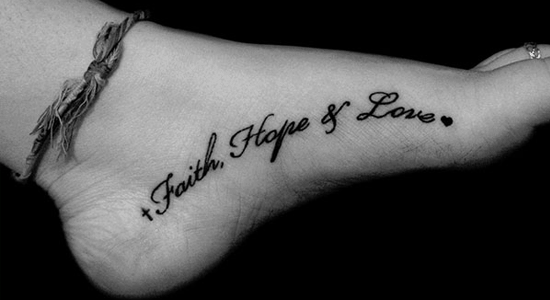
Our description and prescription of the world is based on what we think about these basic believes.
But what are these basic beliefs?
Our worldviews are made up of what we fundamentally think about questions in a couple of different areas.
First of all, questions about origin: Where did everything come from? What’s the story of the world? Is the world an accident or is the world a creation? Is the world designed? Is the world not designed? Is the world an illusion, like certain branches of Hinduism say?
Questions about identity: What does it mean to be a human being? Are humans different than animals? Are males different than females? These are all very important questions. Are we God, like Oprah says, or are we animals like the atheists say? Which one are we?
Questions about meaning: What’s the purpose of life? What wakes me up in the morning? What makes life worth living? What is the purpose of life?
Questions about morality: What is right and wrong? How do I know? Who makes the rules? Whose rules do we have to follow?
Questions about destiny: What happens when I die? Where is history headed?
Now there are different ways to frame these questions. I like these five categories because I find them very simple. The Russian novelist Leo Tolstoy once came up with a similar list of questions and he said, “If I don’t find answers to these questions, I’m going to kill myself.”
So, guess what he did? He became a Christian.
You see, these questions are not just random things about the world. How we answer these questions gives us our sense of who we are. How we understand these questions answers how we understand ourselves and it gives us our view of how we see the world… like a pair glasses.
All of us have a worldview. All of us have a “pair of ideological glasses”.
Here’s the thing: If I took my contacts off and put your glasses on, am I gonna see the world better or worse? Probably worse. And this is what a worldview does. A worldview either allows you to see the world as it is; or a worldview keeps you from seeing the world as it.
Have you ever spoke to someone who is absolutely, fundamentally committed to a different worldview than you? You’ll find that you don’t even use the same words. Or, perhaps you use the same words, but have completely different definitions. For instance, when you say “God” and they say “God”, you don’t mean the same things.
You see, worldviews are made up of definitions about reality. The battle of ideas – the battle for your heart and mind – is the battle over the definition of words. What is meant by “love”? What is meant by “truth”? What is meant by “God”? What is meant by “male” and “female”? What is meant by “human being”?
This matters because our worldview is the foundation of who we are and how we interact with the world. Based on our worldview – how you understand the world – come your values. And then, based on your values are your actions.
So, you do the things that are important to you, and they are important to you based on how you see the world.
As the Proverb says:
Even a child is known by what he does. (Proverbs 20:11)
So, if you say, “Oh no, I’m a Christian!”, but your actions are no different than anybody else, what does that say about your actual worldview? It’s no different than anyone else’s worldview. This is what Barna tells us: for the first time in recorded history, there is fundamentally no difference between the way Christians and non-Christians live their lives, how much debt they go into, the difference in the divorce rate is negligible – it’s different, but not as much as it should be.
If our actions are no different, if our spending habits are no different, if the way we treat other people is no different, then our worldview is also no different.
This is why we want you to really examine this concept. Because this is the third thing about ideas…

- Ideas have consequences.
- Ideas have stories.
- Ideas have feet.
Ideas walk right into the world and they manifest themselves into the real world of human interaction and human activity. That’s what I mean by “feet”.
A lot of us may be think that what it means to be a Christian is to believe certain things, have certain values, and to behave in certain ways. In other words, what it means to be a Christian is to have certain beliefs and to have certain behaviors.
I grew up with this. I knew what I’m supposed to basically assent to and what I was essentially supposed to agree to, in terms of how I live. Those were the two things I was supposed to be committed to.
But here’s what we’re finding out: if all you understand about Christianity is, “This is what we believe and this is how we behave”… If actions and values are not rooted into larger issues of truth with a “Capital T”… what happens when the environment changes? Those values and actions also change.
There are far too many young people today who grew up in a Christian home and they were good Christians when they were in a Christian home, attending a good Christian school; and then, when they went off to college where those values and actions aren’t celebrated or even tolerated, everything changes.
You see, it’s one thing to believe that God created the world when everybody else around you believes that God created the world. It’s another thing to do that when, if you say that out loud you’re thought of as a wacky, uneducated person. It’s even worse when it comes to marriage. It’s one thing to say marriage is between a man and woman at your church where everyone else agrees that marriage is between a man and woman at your church, where everyone agrees with this; but if you say that on your college campus, you’re not only considered wrong, you are considered intolerant and evil.
So, the question is: Are your values and your actions rooted in truth and knowledge about REAL reality?